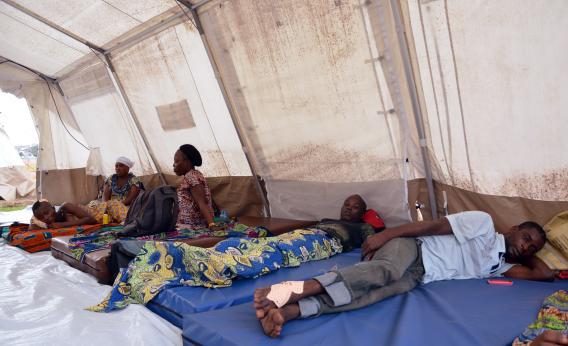Rounding out a week largely devoted to African health care at The Reckoning, let’s consider one more deleterious effect of our current approach to the topic: a giant sucking sound as the aging West’s geriatric needs trump basic health care concerns in Africa.
I wrote earlier this week about the need in aid policy to stress “systems” over “silos” that favor a particular exotic cause célèbre—i.e., HIV-AIDS, malaria, sleeping sickness. These targeted efforts are akin to the “surge” tactics Bush and Obama applied in Iraq and Afghanistan, the difference being that with regard to Africa, the surge crowds out all else, drawing resources away from basic care that is more important in the long run rather than adding to the total.
Understanding and correcting for this distinction will become more important in coming years as aging developed nations require more and more trained medical staff per capita. Already, a medical “brain drain” has taken its toll on African countries that struggle in the best of conditions to train and graduate enough physicians, nurses, and qualified aides to fill available positions.
In 2008, the British medical journal the Lancet published a paper from veteran Western aid workers and their African colleagues asking, “Should active recruitment of health workers from sub-Saharan Africa be viewed as a crime?”
Draconian, perhaps, but not if the trends they project come true.
“High-income countries, such as Australia, Canada, Saudi Arabia, the US, the United Arab Emirates, and the UK have sustained their relatively high physician-to-population ratio by recruiting medical graduates from developing regions, including countries in sub-Saharan Africa. In contrast, over half of the countries in sub-Saharan Africa do not meet the minimum acceptable physician to population ratio of one-per-5000 WHO ‘Health for All’ standard. Nurses, pharmacists, and other health workers are systematically recruited from a region struggling with the greatest burden of infectious and chronic illness and the specific challenge of HIV/AIDS.”
Indeed, the report suggests that the doctor-to-patient ratio may go as high as one per 25,000 in some countries if trends continue! Furthermore, some of the disease-specific programs—again, PEPFAR, Gates, Global Fund, etc.—have lured the best and brightest out of public hospitals into the air-conditioned specialty clinics described by my friend, CFR’s Laurie Garrett.
At the micro level, this translates to fewer sick people seeing a doctor for preventive care or early diagnosis and more of them resorting to hospitals too late in the game.
McKinsey, a consultancy, along with the nonprofit Touch Foundation, commissioned a study of the Lake zone of Tanzania in an effort to determine how best to shore up local health care failings—and to extrapolate those results onto the rest of the region. The WHO, the report said, estimates that a country the size of Tanzania (population 43 some-odd-million) should require a medical workforce of about 92,000. The present number is 24,500. Low salaries, poor incentives, and bad working conditions contribute to a high turnover among active staff, too.
“Tanzania has fewer than 100 training institutions, which produce fewer than 4,000 graduates a year. Up to 30 percent of the country’s health workers leave the system within a year after training,” the report found.
But McKinsey suggests solutions exist. Taking a page from other developing countries, the report said, “Tanzania could offer student loans and incentive packages, as well as an increased commitment from local districts to maintain the quality of health care facilities.”
Now there is a long-term investment in the health of a nation—and of the planet.
No one is suggesting that we prevent Africans who want to emigrate from doing so. But creating institutions inside Africa that work along the lines of the U.S. military academies—a full medical education in exchange for, say, seven years of service to your country—would be a start and a true long-term investment of dwindling Western aid.
It would be wonderful if we could save all people, from any country, who fall victim to disease and misfortune. But in the world we actually live in, this is not going to happen, and acting as if we can perpetuates many behaviors—from donors and recipients alike—that do great harm.
Using our dwindling largesse to create self-sustaining national health capabilities must be the real goal. It won’t show the kind of “ROI” that the slickest charities and shallowest politicians need to brag about. But triage, after all, is another worthy concept drawn from medicine.
(Read Part 1: Rethinking Africa’s Health and Part 2: Doing Harm With the Best of Intentions).
